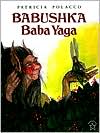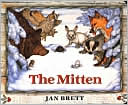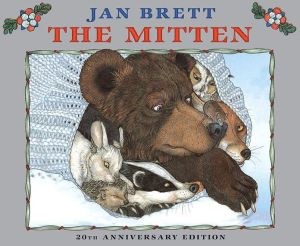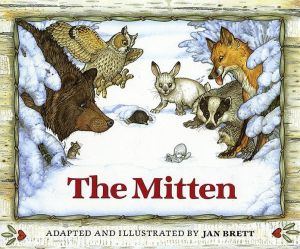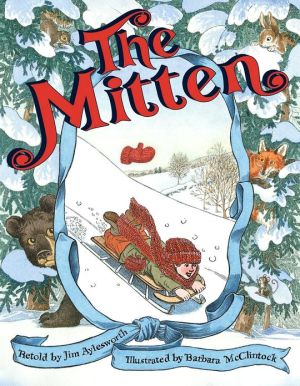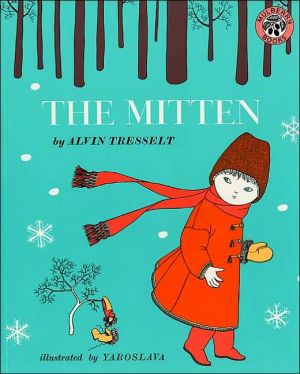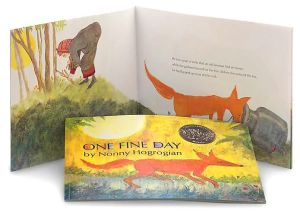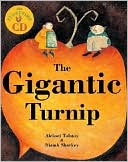Babushka Baba Yaga
Baba Yaga is a witch famous throughout Russia for eating children, but this Babushka Baba Yaga is a lonely old woman who just wants a grandchild—to love. "Kids will respond to the joyful story of the outsider who gets to join in, and Polacco's richly patterned paintings of Russian peasant life on the edge of the woods are full of light and color." — en's Book\ \ The villagers are afraid of her, so the legendary Baba Yaga disguises herself as an old woman in order to...
Search in google:
Baba Yaga is a witch famous throughout Russia for eating children, but this Babushka Baba Yaga is a lonely old woman who just wants a grandchild—to love. "Kids will respond to the joyful story of the outsider who gets to join in, and Polacco's richly patterned paintings of Russian peasant life on the edge of the woods are full of light and color." — en's BookPublishers WeeklyThis "direct yet resonant" retelling of a Russian folktale has "sumptuous colors, a rich melange of patterns and textures--and even a sprinkling of forest fairies," said PW. Ages 4-8. (Jan.)
\ Publishers Weekly\ - Publisher's Weekly\ This "direct yet resonant" retelling of a Russian folktale has "sumptuous colors, a rich melange of patterns and textures--and even a sprinkling of forest fairies," said PW. Ages 4-8. (Jan.)\ \ \ \ \ Publishers Weekly\ - Publisher's Weekly\ Living alone in the forest, Baba Yaga watches longingly as the babushkas of the village care for their grandchildren. Snatching an outfit off a clothesline, the wizened, long-eared creature disguises herself as one of the village grandmothers and goes in search of a child to love. She finds the cherubic Victor, whose mother needs someone to watch him while she works. Baba Yaga savors her new life, until one day she overhears the other babushkas speaking hatefully of the legendary Baba Yaga. Greatly saddened, she decides to return to her home in the woods before Victor discovers her true identity. Polacco's soothing version of this Russian folktale ends happily: Baba Yaga saves her beloved charge from a pack of vicious wolves and earns the babushkas' praise and acceptance. The art features Polacco's ( Rechenka's Eggs ) trademark sumptuous colors, a rich melange of patterns and textures--and even a sprinkling of forest fairies. Such visual dimension, coupled with her direct yet resonant narrative, marks this as another of Polacco's winning picture books. Ages 4-8. (Sept.)\ \ \ Children's Literature\ - Susie Wilde\ In most Russian stories, Baba Yaga is a horrible witch who eats children, but not in Polacco's Babushka Baba Yaga. She wants to be a grandmother and hug and hold children. It is not just how Polacco changes the character. She also tells a really great story when she adds real human feelings to Baba Yaga. Kids will love the twist and they will love saying "Babushka Baba Yaga" over and over.\ \ \ \ \ Children's Literature\ - Marilyn Courtot\ A delightful tale about a good Russian witch with a lesson about judging by appearance alone. Baba Yaga is not really a wicked witch, she just wants to be some little child's grandmother. Her chance comes when she saves a young boy from the wolves and the other grandmother's accept her as one of their own. Polacco's variant of this Russian folktale is beautifully illustrated. Widely reviewed and praised, this book earned a "star" from School Library Journal.\ \ \ \ \ School Library JournalK-Gr 3-Wishing to be like the people she watches from the woods, Baba Yaga dresses herself in human clothing and covers her elfin ears with a scarf. Resembling any other grandmother or babushka, she is welcomed into the home of a young mother and quickly assumes the care of a child named Victor. She grows to love the boy, but when the other old women tell terrifying stories of the witch Baba Yaga, she returns to the woods with a heavy heart. Missing her, Victor wanders into the woods and is threatened by ferocious wolves. Coming to his rescue, Baba Yaga is finally accepted by the babushkas who realize that, ``Those who judge one another on what they hear or see, and not what they know of them in their hearts, are fools indeed!'' Polacco's reassuring text is accompanied by her full-page illustrations drawn in a casual, relaxed style in a variety of mediums: markers, charcoal pencil, chalk pastel, and gouache. The underlying message of tolerance is well presented, and the author does an admirable job of melding the two contrasting grandmother images from Russian culture. While her depiction of the misunderstood creature may surprise serious students of folklore, those wanting to share a kinder, gentler Baba Yaga will welcome this picture book.-Denise Anton Wright, Illinois State University, Normal\ \
